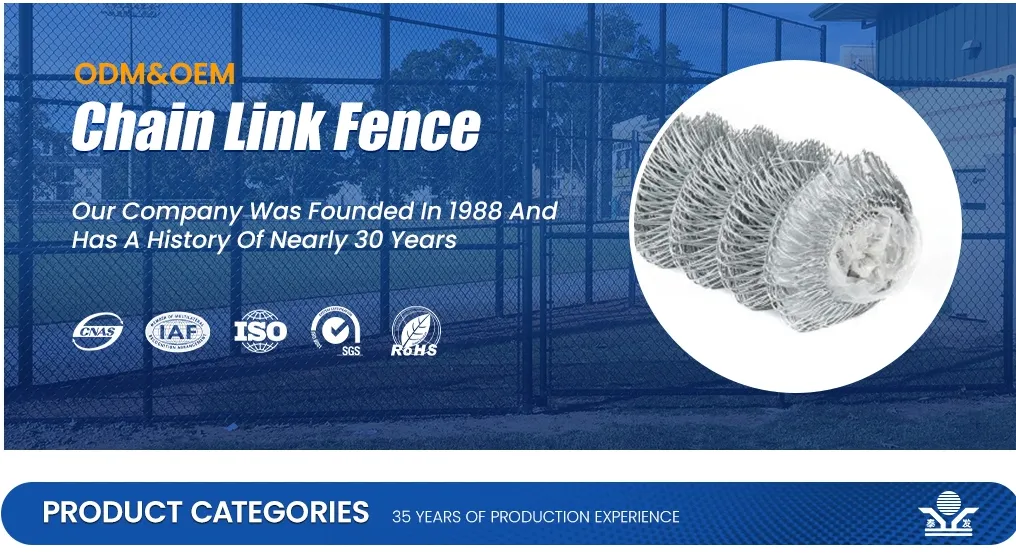The Versatility of Stainless Steel Perforated Sheets
Stainless steel perforated sheets are among the most versatile and durable materials used across various industries, ranging from architecture and construction to manufacturing and filtration. Characterized by a series of holes or perforations, these sheets not only enhance the aesthetic appeal of structures but also offer functional advantages that are difficult to replicate with other materials.
Definition and Manufacturing Process
Stainless steel perforated sheets are made by punching, drilling, or stamping holes into stainless steel plates. The choice of hole size, shape, and spacing can be customized to meet specific design and functional requirements, making these sheets an incredibly flexible solution for numerous applications. The manufacturing process usually involves using precision equipment to ensure that the perforations are uniform and consistent, catering to both structural and aesthetic needs.
Advantages of Stainless Steel Perforated Sheets
One of the primary reasons for the popularity of stainless steel perforated sheets is their excellent corrosion resistance. Stainless steel, as its name suggests, is designed to resist rust and staining, making it ideal for use in environments exposed to moisture and chemicals. This property not only extends the lifespan of the product but also maintains its visual appeal over time.
Another significant advantage is their strength and durability. Stainless steel has a high tensile strength, allowing perforated sheets to withstand significant mechanical stresses. This makes them suitable for heavy-duty applications, such as in industrial machinery, structural supports, and safety barriers.
Moreover, the breathable nature of perforated sheets allows for ventilation and drainage, making them perfect for uses in architectural designs. For example, perforated stainless steel facades can enhance the aesthetic appeal of buildings while allowing natural air circulation. This attribute is also beneficial in various manufacturing processes where air and fluids need to flow through while filtering out unwanted materials.
stainless steel perforated sheet perforated metal sheet

Applications Across Industries
Stainless steel perforated sheets find applications in numerous sectors. In architecture, they are often used in facades, screens, and railings to create visually stunning designs that also provide functional benefits like privacy and shade. In the food and beverage industry, these sheets are utilized for filters and sieves, where hygiene and corrosion resistance are paramount.
In the automotive and aerospace sectors, stainless steel perforated sheets are employed for noise reduction, thermal insulation, and weight reduction in various components. They are also essential in the manufacturing of appliances, appliances housing, and decorative finishes.
Environmental Benefits
Using stainless steel perforated sheets can contribute to sustainability efforts. Stainless steel is recyclable, and its durability means that products made from it do not need to be frequently replaced, reducing waste. Furthermore, the energy required for its production and recycling is lower compared to many alternative materials, making it an eco-friendly choice for environmentally conscious projects.
Conclusion
Stainless steel perforated sheets stand out as a superior material choice due to their combination of durability, aesthetic flexibility, and functional advantages. Whether in architecture, manufacturing, or filtration, their applications are as diverse as the industries that employ them. With ongoing advancements in manufacturing techniques, the potential for innovative uses of stainless steel perforated sheets continues to grow, solidifying their place as a crucial material in modern design and engineering. As architects, engineers, and designers seek sustainability and aesthetics, stainless steel perforated sheets remain a prominent solution, capable of meeting both functional and aesthetic needs.
-
Versatility of Expanded Aluminum Metal for Various Applications
NewsMay.19,2025
-
The Geometry of Steel Gratings: Why It Matters
NewsMay.19,2025
-
Reinforcement Applications of Perforated Mesh in Masonry
NewsMay.19,2025
-
Essential Tools for Installing a Deck Mesh Railing
NewsMay.19,2025
-
Anti-Slip Flooring Made with Stainless Expanded Mesh
NewsMay.19,2025
-
Adjustable Steel Grating for Uneven Terrain
NewsMay.19,2025
Subscribe now!
Stay up to date with the latest on Fry Steeland industry news.

